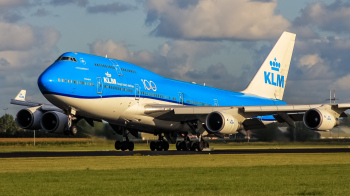LifeNet is an American regional airline that was founded in 1994. The airline is based in Tulsa, Oklahoma and operates flights across the United States. LifeNet is the first regional airline to operate solely under the “regional” designation, meaning that all of its aircraft are smaller than those operated by larger, mainline carriers.
LifeNet began operations in 1994 with just four aircraft. The airline's first routes were between Tulsa and Dallas, Houston, and San Antonio, Texas. The airline then expanded to include routes to other cities in the southern United States, such as Atlanta, Memphis, and New Orleans. The airline's fleet has grown significantly over the years, and now consists of over 50 aircraft, including regional jets, turboprops, and even a few helicopters.
LifeNet is known for its commitment to safety and operational excellence. The airline has won numerous awards, including the Aviation Week Top Regional Airline award in 2009 and the Air Transport World Regional Airline of the Year award in 2010. In addition, the airline has been recognized for its commitment to customer service and has achieved a customer satisfaction rating of 97%.
Throughout its history, LifeNet has been involved in a number of important milestones. In 1998, the airline was the first regional carrier to offer onboard Wi-Fi on its aircraft. In 2002, LifeNet was the first regional airline to introduce a “Business Class” cabin, offering passengers more comfortable seating and amenities. The airline also pioneered the use of alternative fuels in its aircraft, becoming the first regional airline to operate a jet powered by biofuel in 2009.
Unfortunately, LifeNet has also been involved in several incidents over the years. In 2003, one of the airline's aircraft was involved in a mid-air collision over the Gulf of Mexico, resulting in the deaths of three passengers. The National Transportation Safety Board was unable to determine the cause of the accident, but it was widely believed to be due to pilot error. In 2004, the airline was the subject of a federal investigation into its safety and operational procedures. The investigation found numerous safety violations, including inadequate maintenance and inadequate crew training. The airline was subsequently fined $1.5 million by the Federal Aviation Administration.
LifeNet has come a long way since its founding in 1994. The airline has grown from a small regional carrier to one of the largest regional airlines in the United States. Through its commitment to safety and operational excellence, LifeNet continues to be a leader in the regional aviation industry.




Comments